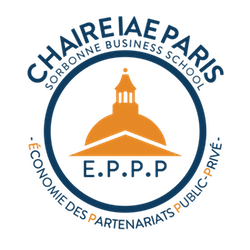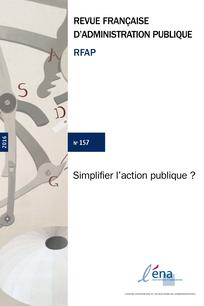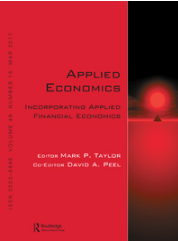Posts de Stéphane Saussier
Les partenariats public-prive institutionnalisés : intérêts, limites et risques d’une structure hybride public-privé
3 juin 2016 Julie de Brux et Frédéric Marty, Revue française d’administration publique 2016/1 (N° 157) Résumé : La loi du 1er juillet 2014 créant les sociétés d’économie mixte à opération unique a introduit en droit français la notion européenne de partenariat public-privé institutionnalisé. Ces structures hybrides public-privé visent à répondre aux difficultés induites par les montages…
Lire la suiteNeither Market Nor Hierarchy: Concurrent Sourcing in Water Public Services
2 Juin 2016 Simon Porcher, Journal of Public Administration Research and Theory Abstract : Analytical frameworks of government service contracting decisions typically focus on the make-or-buy decision. In concepts, governments can either produce the service itself (make) or outsource production (buy). However, governments make and buy the same public services, a practice that is termed…
Lire la suiteWhen does ideology matter? An empirical analysis of French municipalities’ make-or-buy choices
Numéro: 2016-5 Jean Beuve and Zoé Le Squeren – When does ideology matter? An empirical analysis of French municipalities’ make-or-buy choices Abstract: Many empirical studies have analyzed the factors that influence local government decisions regarding the management of public services. In those studies, ideological motives are often found to be not, or at least very slightly, significant. This absence of ideological…
Lire la suiteThe law of small numbers: Investigating the benefits of restricted auctions for public procurement
Numéro: 2016-4 Lisa Chever, Stéphane Saussier and Anne Yvrande-Billon – The law of small numbers: Investigating the benefits of restricted auctions for public procurement Abstract: A commonly accepted view in the academic literature is that dispensing with competition may only be beneficial when tendering complex contracts. However, restricted auctions are frequently used among EU-member states to procure small contracts (OECD, 2010). In…
Lire la suiteThe law of small numbers: investigating the benefits of restricted auctions for public procurement
29 janvier 2017 Lisa Chever, Stéphane Saussier, and Anne Yvrande-Billon, Applied Economics Abstract : A commonly accepted view in the academic literature is that dispensing with competition may only be beneficial when tendering complex contracts. However, restricted auctions are frequently used among EU member states to procure small contracts. In this article, we investigate this paradox.…
Lire la suiteLes obligations à impact social : une nouvelle génération de PPP pour les politiques sociales ?
Numéro : 2016-3 Frédéric MARTY – Les obligations à impact social : une nouvelle génération de PPP pour les politiques sociales ? Résumé : Expérimentés depuis quelques années au Royaume-Uni et aux Etats-Unis, les Social Impact Bonds (SIBs) visent à faire financer par des investisseurs privés des programmes sociaux en conditionnant leur remboursement et leur niveau de rémunération financière à…
Lire la suiteDe nouveaux partenariats public-privé pour plus de croissance ? — Interview Xerfi Canal Economie
De nouveaux partenariats public-privé pour plus de croissance ? — Interview Xerfi Canal Economie Publié le mer, 15/04/2015 – 11:11 De nouveaux partenariats public-privé pour plus de croissance ? — Interview Xerfi Canal Economie saussier’s blog
Lire la suiteTransition Energétique: comment mobiliser les financements privés
Transition Energétique: comment mobiliser les financements privés Publié le lun, 28/09/2015 – 14:14 « Transition Energétique: comment mobiliser les financements privés » par Paul Codani et Carine Staropoli, La Tribune, Blog du Club des Economistes de l’Energie, 17 septembre 2015. staropoli’s blog
Lire la suiteLe diable est-il dans l'annexe ? Les risques budgétaires des PPP saisis par le traitement des passifs éventuels
Numéro : 2016-2 Frédéric MARTY – Le diable est-il dans l’annexe ? Les risques budgétaires des PPP saisis par le traitement des passifs éventuels Résumé : Les contrats publics globaux à long terme, dont les PPP, ont été vivement critiqués par la Cour des comptes, et par le rapport d’information des sénateurs Portelli et Sueur, sur la base…
Lire la suiteLe prix de l’eau – Interview de Stéphane Saussier
Interview de Stéphane Saussier, Directeur Scientifique de la Chaire Economie des Partenariats Public-Privé de l’IAE de Paris Sorbonne, réalisée par le Centre d’Information sur l’Eau.
Lire la suite



